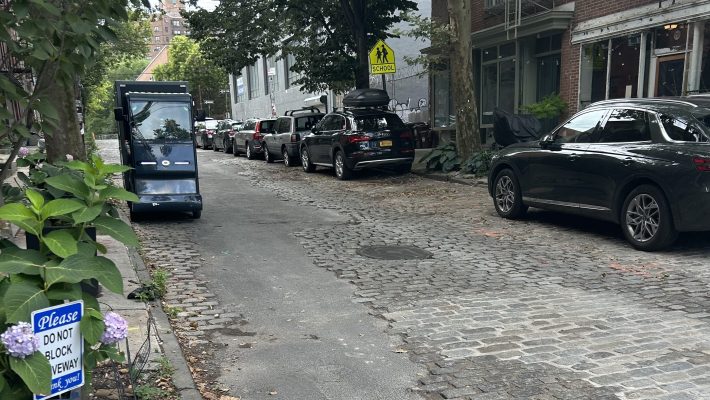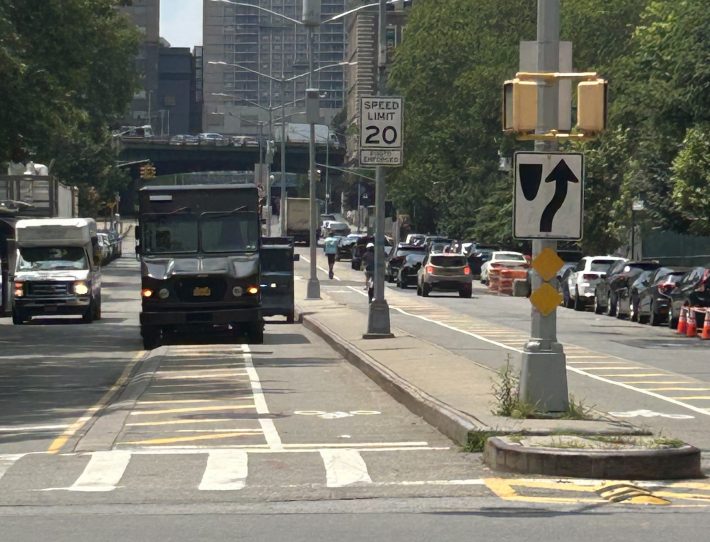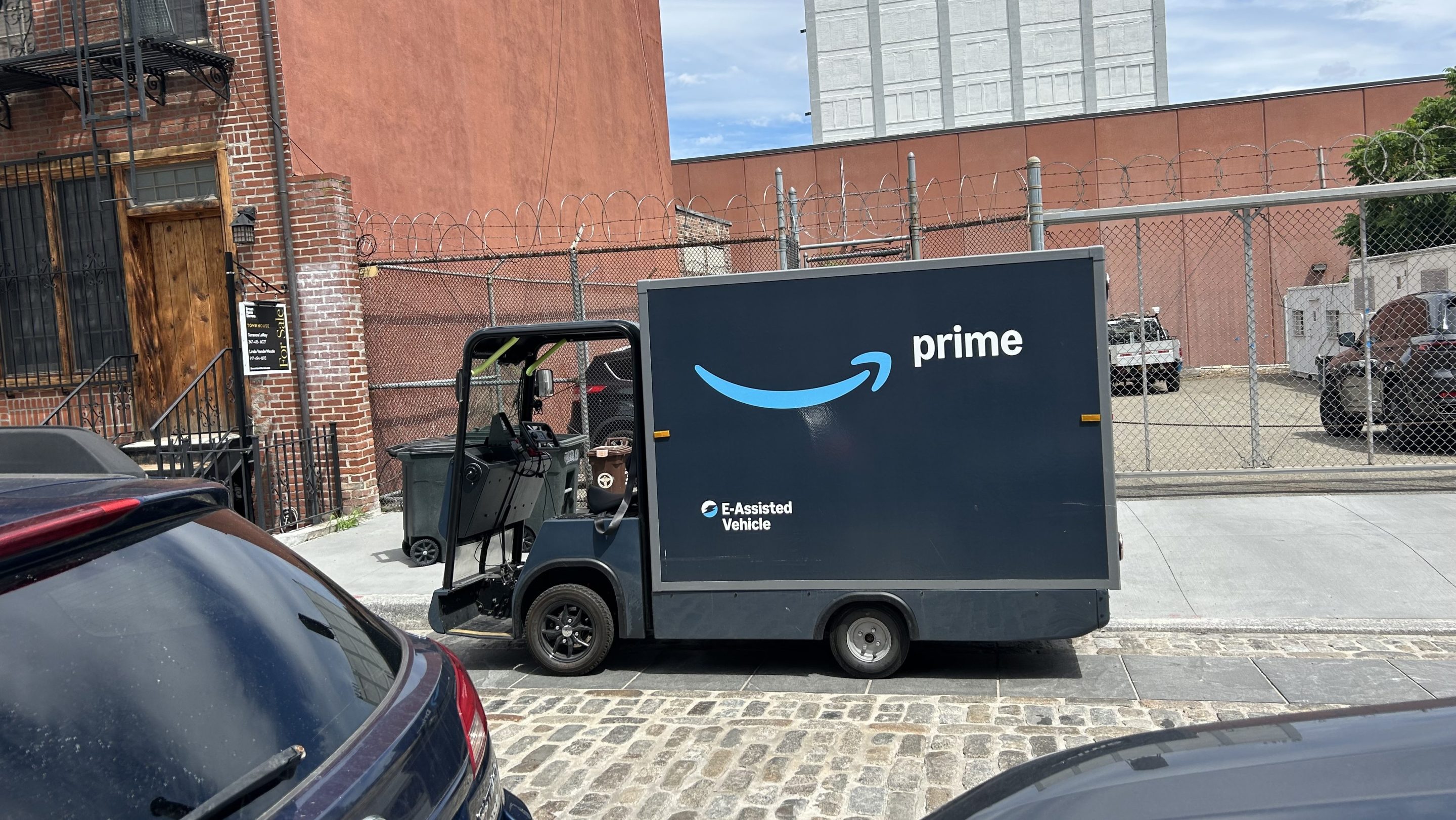Amazon’s quirky pedal-powered micro-delivery vehicles, which can carry up to 120 packages per trip, have taken New York City by storm.
I, for one, welcome our new corporate cargo e-bike overlords.
New York City gave the green light for the use of cargo e-bikes on city streets in 2024. At the time, Amazon said it would deploy 250 of them in Manhattan.
With the House of Bezos making over two million deliveries a day to the Big Apple, the e-retailer said back in May that it had expanded its micromobility fleet to “advance the city and region's sustainability goals” and address its own urban freight delivery needs — so far, the tiny little trucks appear to be absolutely crushing it.
Brooklynites started seeing them on the streets all over, but now they’re popping up all over the city.
Cargo bikes have been fairly commonplace in metropolises across Europe for personal use (especially in the Netherlands), but they still haven't quite yet caught on in the United States. But Amazon’s efforts with their quadcycles show that cargo bikes are indeed ready for prime time.

In 2022, UPS made the announcement it was testing electric cargo bikes for the New York City market as a “more sustainable way to deliver in dense urban environments and navigate zero-emission zones,” calling their model “the eQuad.” (Whatever happened to these?)
But Amazon has seemed to be the victor in the micro-delivery war, effectively being the first to flood the zone with its own e-cargo bikes, successfully schlepping packages in neighborhoods all across the Big Apple. (And the company, unlike at least one of their competitors, is successfully utilizing “microhubs” that the city has delineated for offloading parcels.)
In the process, they have made our trafficscapes a lot safer.
With a weight of just 1,322 pounds, these e-cargo bikes are far less likely to kill a pedestrian than the average delivery van which can tip the scales at 15,000 pounds or more.
As previously reported by Streetsblog, a 2021 study published in the journal Economics of Transportation found that replacing light trucks with cars between 2000 and 2019 would have averted 8,100 pedestrian fatalities. Imagine replacing a massive delivery vehicle with one of these vastly smaller carts. The difference in safety is clearly staggering.
And the proliferation of these contraptions are an encouraging sign that congestion pricing is motivating big companies to get creative with automotive alternatives.
I've already seen what a positive impact they've made in my tiny neighborhood of Vinegar Hill, which is squished between DUMBO and the Navy Yard and known for its narrow streets. In comparison to the e-giant’s full-sized electric van monstrosities or UPS package cars, Amazon’s slow-rolling cart-like quadricycles can easily fit in bike lanes, aren’t a significant danger to pedestrians and don’t block traffic. And they’re quiet.
I talked to a few of the drivers who gave me generally positive feedback from the experience:
- “They’re very convenient to get around.”
- “It’s good for short distance deliveries.”
- “It gets around really easily for neighborhood deliveries.”
- “It can be hard going up hills but it’s pretty smooth otherwise.”
- “Not going to lie, the fan sucks on very hot days, but that shouldn’t be a problem once we get out of summertime.”
- “Despite its size, it’s lightweight.”
- “Very easy to pedal…some people think it’s going to be like pedaling on an exercise machine at the gym but it’s very smooth.”
Prior to this summer’s masterful rollout by the Bezos biz, the DOT’s e-bike encouragement efforts had their doubters.

One dire 2023 New York Post headline proclaimed Giant "green" delivery e-bikes planned by NYC DOT ‘will kill cyclists’ while crowding bike lanes, riders warn.
So far that ominous prediction has not come to fruition. But the e-cargo bikes still have had their share of detractors who question their official designation as a “bicycle.”
YouTuber Chich Bolt declared them a “disaster” for New York City’s bike lanes, arguing they’re “causing chaos for cyclists.”
Bolt’s main argument seemed to be that the cargo bikes slow down other bike lane users – which seems more of a justification to improve the city’s bike lane infrastructure than an indictment of Amazon’s delivery vehicles, which are made by the German company Mubeau.
Other netizens have gone viral by snarking on the delivery of e-cargo vehicles in recent weeks. One poster framed the bike as a symbol of corporate dishonesty: “Amazon wants you to believe this is legally a bicycle.” Another said the vehicle is “4x bigger than a bike and as fast as a car, but for some reason is allowed to drive in bike lanes.”
I start laughing every time I see one of the Amazon motorized delivery vehicles that's 4x bigger than a bike and as fast as a car but for some reason is allowed to drive in bike lanes. The future is funny pic.twitter.com/dWuSISOkhe
— cold 🥑 (@coldhealing) July 14, 2025
The latter comment hilariously overstated the performance of one of these e-bikes. In fact, their motor is a scrawny 250 watts — just enough power for delivering packages up a steep street (as I mentioned before, couriers sometimes have to push themselves to get up hills when carrying a lot of packages), but nowhere close to the speed of a car.
Just because a bicycle doesn’t conform to our aesthetic expectations of a bicycle, doesn’t mean it’s not a bicycle. And Amazon isn’t trying to pull a fast one on us, as far as the law is concerned, a “Pedal-Assist Commercial Bicycle” is a bicycle.
“At the end of the day, what these mean is one less combustion engine on the road, one less truck stopped or blocking a bike lane, and one less 10,000-plus pound truck being let loose on a city street to further endanger pedestrians and cyclists,” bike attorney Daniel Flanzig told me in an email.
I’ll admit that Amazon’s reputation for sustainability hasn’t been great (the company's greenhouse gas emissions had risen for the first time since 2021), but I’d like to give the company credit for this one thing: a cleaner, safer mode of delivering packages.
Maybe more New Yorkers will trade in their own gas vehicles for their own cargo bike cart thingamajig.






